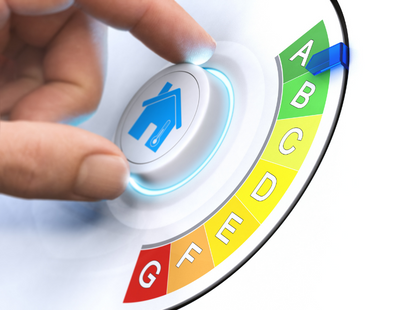
Some good news is here for landlords and letting agents worried about the energy efficiency rating of their property – the Green Deal is back.
There are around 27 million homes in the UK, of which most fall into categories C- and D- in the EPC range, but some are much worse.
As many readers will know, in order to tackle this, the government has introduced the Minimum Energy Efficiency Standards (MEES), which will require properties in the private rented sector to have a minimum energy performance rating of E- before they can be let, unless there is an applicable exemption.
Estate and letting agents need to be aware of the impact of the regulations, which have the potential to make the UK’s leakiest housing stock un-rentable by law if improvements are not made to upgrade a property’s energy rating.
UK landlords need to act fast in order to comply with the MEES requirements, and in many cases this will mean shouldering the significant upfront cost of installing necessary measures that improve a home’s energy efficiency.
This is concerning for many people, as around 50% of households in the UK don’t have sufficient cash savings to pay for a new boiler, for example.
Many landlords will need to source finance quickly from elsewhere before the MEES Regulations kick in, and letting agents should be aware of this when dealing with landlord clients.
Energy efficiency upgrades can require significant upfront investments, and landlords have expressed concerns about how they will find the funds to make sure their properties are compliant in such a short space of time (the regulations are set to come into effect from April 2018).
This is perhaps particularly the case for ‘accidental landlords’, for example those who inherit a property after death, or move into their partner’s home and are left with an empty property they need to let.
It seems there are lots of landlords in this position. Paragon's ‘18 years of buy-to-let’ report, released in 2014, suggested that 89% of UK landlords are private individuals. In the same year, Countrywide reported that 93% of its landlords have just one rental property.
Luckily, following the sale of the Green Deal Finance Company to private investors in January this year, Green Deal finance is available once more through a number of GDPs across the country.
It works by making finance available to go towards the costs of retrofitting a property, and loan repayments are made via the property’s energy bill paid for by their tenants, who benefit from the more energy efficient home. Any landlord can apply for a loan to cover a range of energy efficiency measures, including new or replacement boilers, cavity wall insulation and heating, hot water and lighting controls.
This should go some way to reassuring landlords and agents who are worried about the impact of MEES on their business, or even those who simply wish to make their properties more attractive for tenants by improving their energy efficiency.
*Kilian Pender is chief executive of the Green Deal Finance Company (GDFC)













.png)


.png)



Join the conversation
Be the first to comment (please use the comment box below)
Please login to comment